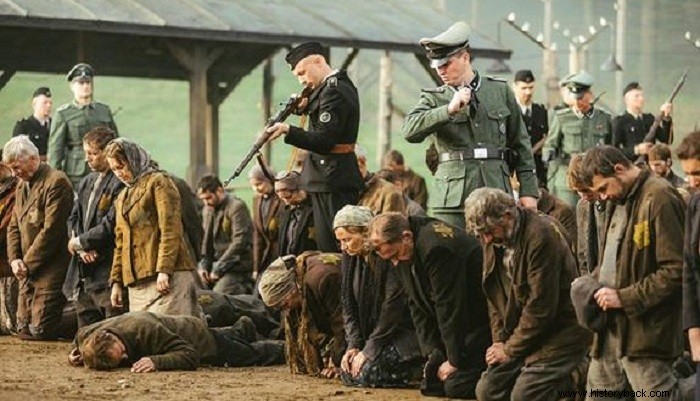
The Treblinka death camp was one of three in "Operation Reinhardt" to exterminate the Jews. Began operations on July 23, 1942 in a forest northeast of Warsaw. In it 700-900,000 Jews and about 2,000 Gypsies were murdered. Treblinka was the deadliest German camp after Auschwitz.
The Germans at first murdered all the Jews who were transported there. But then they started keeping some alive by joining them in crews to carry out the "work". These Jews formed a core of resistance with the aim of revolting and escaping the death camp.
Rebellion preparation
The head of the secret organization was theJewish prisoner of the Polish army captain Julian Horazitski. So a commission was organized that included Zelimir Bloch, Rudolf Masaryk, military doctor Berek Lachter and several others.
The prisoners decided to revolt on June 15, 1943 but the date was eventually changed when a prisoner rushed to attack using a grenade. After that the Germans limited the sending of victims to extermination in Treblinka by ordering only the cremation of the already dead.
Rebellion
Finally on August 2, 1943 the rebellion broke out. The timing was right as a group of SS men led by Lieutenant Kurt Franz and 40 Ukrainian guards had gone for a swim. The prisoners managed to unlock the guard's armory and grab 20-25 rifles, 20 grenades and several pistols.
Immediately after that the approximately 700 prisoners attacked. In the first phase they set fire to camp buildings, blew up a fuel tank and set fire to facilities. One group attacked the main gate of the camp while others attempted to climb over the fence.
The approximately 25 German and 60 Ukrainian guards immediately responded with machine gun and rifle fire and killed most of the insurgents. Only 200 managed to escape from the camp. As they had not failed to cut the telephone cables, the Germans immediately called for reinforcements.
The pursuit of the fugitives immediately began. About half of those who escaped were killed immediately. Polish guerrillas of the AK organization rescued some of the fugitives. Others fled to Polish villages. Some were helped, some surrendered to the Germans. Eventually about 70, i.e. 1 in 10, managed to survive until the end of the war.
"It was hell. Absolute hell. A normal person cannot imagine how a living creature can survive. Born killers, without any feeling, they just killed," said one of the survivors, Kalman Tiegman, before he died in 2012. Other survivors could not bear the mental burden of living and their loved ones having died, and in such a horrible death, that they took their own lives.
The Treblinka camp operated briefly after the uprising. Then the Germans destroyed it and tried to completely erase its traces without succeeding.
